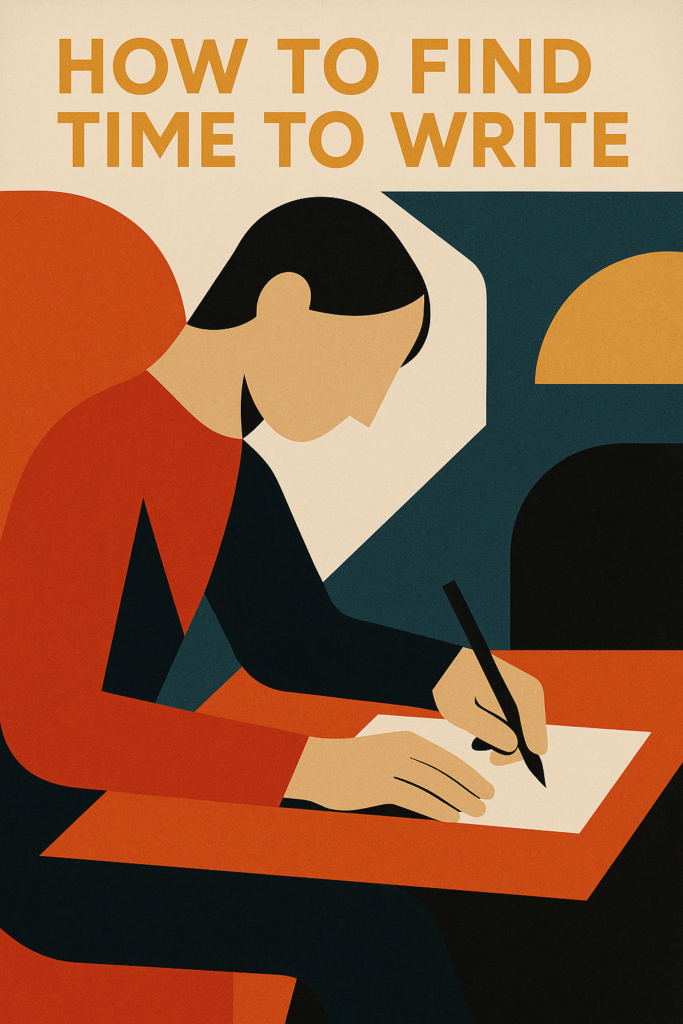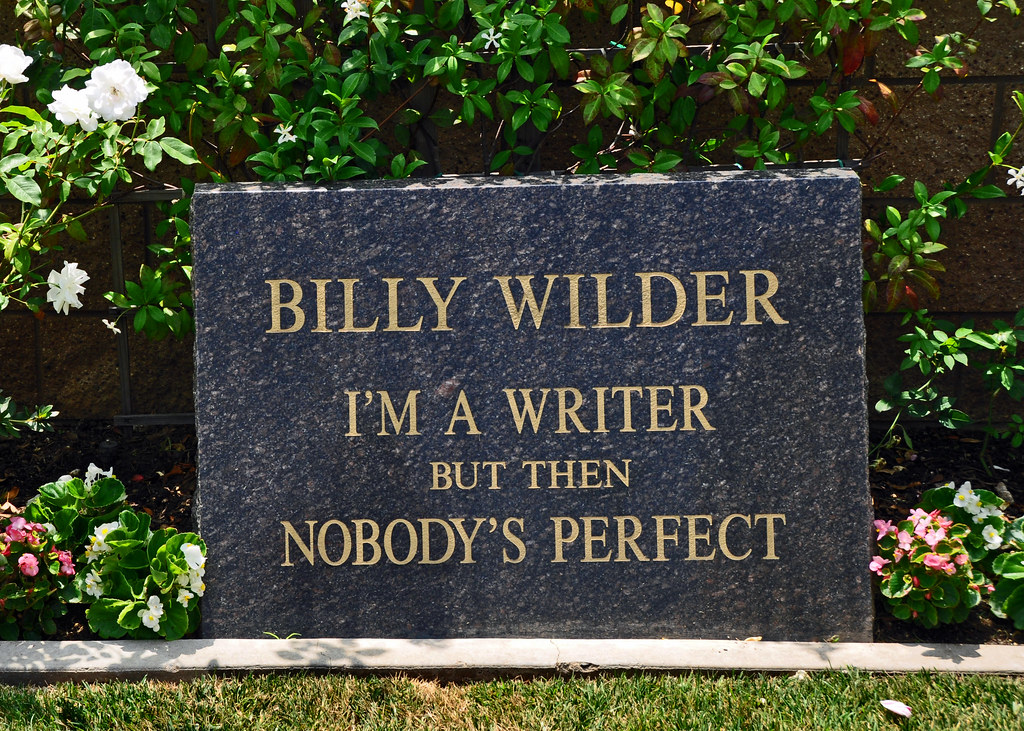How to Find Time to Write Your Screenplay: A Practical Guide for Busy Writers

It’s notoriously difficult for writers to find time to write.
Your day job, family, social life, and obviously the hellscape of social media all conspire to relegate your writing project to the bottom of basically any to-do.
So how is it that many thousands of screenwriters have managed to write powerful, polished scripts under circumstances painfully similar to yours?
First things first: a mindset shift.
Waiting for the muse to strike simply won’t happen. Any successful, productive writer knows that output comes from having your ass in the chair. If you show up, sometimes you’ll get lucky and the muse will appear. If you’re waiting for him to get off the toilet, you’re already done for.
Honestly, endless free time isn’t all it’s cracked up to be. In fact, it’s crazy-making at worst, and at minimum lazy-making. To finish projects, you need discipline, systems, and clarity on your priorities.
Let’s discuss some practical strategies about how to find time to write, stay consistent in your writing practice, and develop clarity in your priorities. Let’s turn your screenplay into a reality.
1. Small Time Blocks
There’s so much hot air out there. I remember this from when I was at university: people didn’t really think about time the same way 20 years ago, and productivity was hardly top-of-mind for most students.
We were often told that “to get two good hours of studying, you need to have five hours free.” This is nonsense, not least because it’s nearly impossible–even in a university setting–to give yourself five uninterrupted hours.
Not to mention if you’re creative, working on one thing for that long at a stretch will exhaust you to the point that you might not even be able to continue with it tomorrow!
The best students, of course, took any moment–even five minutes here and there–and did a bit of reading or working through their problem sets. They put their asses in the chair and did something, even if it was a small amount.
With this in mind, embrace short writing sprints: set a timer for 15, 20, or 30 minutes at a time. The short window will focus you, and forcing a break at the end will keep you motivated to dive back in when you have another moment.
The time adds up: writing is just words on the page, and those stack. If you only manage 30 minutes a day in total, that’s still 15 hours of writing per month (or 11 hours if you take weekends off). Remember: consistency over inspiration or intensity.
This is of course similar to the Pomodoro technique (look it up; unsurprisingly, it involves tomatoes). Allow small efforts to accumulate.
2. Identify Your “Hidden Hours”
How to find time to write isn’t about eliminating your free time; it’s about rearranging or reassigning time. Audit your daily routines.
- Is it possible to wake up earlier? Obviously this means going to bed earlier, because less sleep will almost never help your creativity. (Unless you want to trip balls by staying up for 72 hours straight and report back what the elves have to say…) A little bit better sleep hygiene can work wonders, and it’s worth it to get your script written.
- How much time do you really spend on TikTok? Really? How’s that going for you?
- Can you write during a commute, perhaps by dictating scenes in VoiceNotes or even writing (if you’re on a train)? Please don’t write or type shit into Notes while you’re driving.
When you sit back and look at it, it’s pretty shocking how much time is spent passively consuming garbage. (It makes 1990s sitcoms look intelligent.) Stop doing that for just a few minutes a day and you have productive time where you can do something worthwhile!
Even a tiny fraction of the time you spend staring slack-jawed and drooling into the hypnotic rectangle can be repurposed–to write. Do it.
3. Make Writing a Non-Negotiable Appointment
If writing becomes something that you hold yourself accountable to–the way you would to someone else, like a client meeting or dentist’s appointment–then you’ll make the time in your calendar.
The people around you know to get the hell away during this time. Make it a priority.
Even better, find a supportive group, such as the London Writers’ Salon, to help you write. LWS, in particular, offers 4x-daily writing hours that can be accessed for a very reasonable fee (or even free on concessions).
4. Set Clear, Achievable Goals
The tighter the goal is, the more likely it is to be achieved. Something like “work on my screenplay” sort of sucks because what does that even mean, yo? Rather, just say “write 500 words” or “map three scenes” or “outline scene 5.”
These sort of goals are bite-sized and therefore seem achievable. How to find time to write is getting the reluctant little child in your brain to agree to do the work is really hard if the goal doesn’t seem doable.
Make sure these are things that are easy to track and complete. Mark them in the calendar so you can keep track of your streak of successes.
Here’s a good way that you could break a screenplay into more manageable chunks:
- Week 1: Create a one-sentence logline
- Week 2: Outline the three-act structure
- Week 3: Flesh out character bios
Etc…
Long story short: when you understand precisely what needs to be accomplished, your time becomes vastly more effective.
5. Create a Dedicated Writing Environment
Give yourself space to write.
I’m writing this on the kitchen table, because I can’t stand writing in my office–it’s for teaching only. Find yourself a place within your space that is “where writing happens.”
This can be a favorite cafe or library, although watch out for opening hours, turnover of the good staff members (who can make all the difference), or strollers and howling children. I’m as big a fan of the external location as anyone, but it’s important to find a place within your own home that is helpful because sometimes you just need to write when other places are shut.
On a personal note, this became very handy when–for various unfortunate reasons–I moved into a part of London that was, unbeknownst to me at the time, a Coffee Desert. With no decent cafes to be had within about 2 miles in any direction, I have turned home into my primary writing spot (and bought a Gaggia).
What you need is a place that signals: “This is where the shit gets put on the page.”
When you’re at the place, close your browser and put the phone on airplane mode. Plug into some good music to keep you moving along and keep distraction at bay. Get some quality earplugs if that helps.
Creating a ritual like this trains your brain to enter a focused state very quickly.
6. Use Writing Tools That Fit Your Lifestyle
Figure out ways to write any time, anywhere. I’m a huge fan of writing by hand as much as possible, at least until the time of actually drafting (where formatting software such as Scrivener is a lifesaver).
- Put Final Draft Mobile, Celtx, or Scrivener on your phone or tablet.
- Voice-to-text apps: dictate scenes and notes while walking or commuting.
- Google Docs: cloud-based and accessible across devices.
- Notebooks: write down anything that comes up. Just make sure to mark the topic clearly!
- Index cards: allows you to sketch and organize scenes, while not allowing you enough space to drivel on…
Test out one, a couple, or all of these methods. Figure out when you can use them and what is most helpful. For example, I take rough notes in a notebook, draft and outline on index cards, and type scriptments into Google Docs. When I’m actually drafting, it’s Scrivener.
If I’m caught without a pen (which is rare in the day-to-day but sometimes happens when running) I type notes into Notes on iOS.
7. Learn to Say No to Others (and Other Things)
Being codependent is killing your writing. I know this from experience.
But seriously, you have to focus so that means saying no to distractions. If you really need to get something written, that might mean saying no to a party, figuring out a peaceful way to delegate household tasks, or going to bed earlier to wake up before the shit hits the fan.
Defend your creative space; if you don’t do so, everything else will eat away at it.
This means choosing intentionally, not being a hermit. It’s saying YES to your script when you say NO to something that’s wasteful and probably sort of sucks anyway.
When your friend says YOLO, remember that in fact you do only live once; therefore, you’re better off having written a complete screenplay before you decide to drop acid and go rock climbing or whatever asinine shit he’s suggesting.
8. Establish Accountability Systems
Shame used to make the world go ‘round.*
Public accountability and decency have been a standard of human society since before the dawn of civilization. Hunter-gatherers who chronically behaved selfishly or consistently failed to contribute had a curious habit of having “hunting accidents.”
If only such things existed for the architects of the drain-circling hellscape we live in! But I digress…
The point is that public accountability is a real thing. It seems to be hardwired into the human nervous system. All you need to do to help your writing is remember that and get someone to shame the fuck out of you when you don’t write.
How to do that?
- Joining a screenwriting group
- Partnering with a writing buddy
- Posting your progress online
- Using habit-tracking apps like Streaks or Habitica. Note that this is only useful if it doesn’t make you twitchy: a missed day/broken streak is normal. Just get back on the horse and quit flagellating yourself.
Even something as simple as a scheduled progress update with a friend–who doesn’t even have to be a writer!–is enough to make you stick to a goal.
Trust me, if I didn’t have a piano teacher coming every week, I’d never get anywhere with my practice. I’m a bit better about writing, but it’s the same idea.
Remember, we are lazy, feckless creatures by nature, so any external ways to give us encouragement–or to risk the shame of not completing the work–are incredibly helpful!
*This is not meant as in a parent unfairly shaming a child, like a mother telling her daughter no one will ever love her if she keeps farting so much. That’s just horrible; the kid needs therapy and the mother needs a personality transplant.
9. Reframe Writing as a Privilege, Not a Chore
It sucks to write when you’re already super tired. Or wake up to write when you haven’t slept well. Etc., etc.
There are a couple of ways to reframe this. First, remember how good you’ll feel afterward. You don’t exercise because it’s fun to do so (and if you think it is, fabulous for you… freak). You exercise because you know you need to and you’ll feel way better about yourself when it’s done.
Likewise, when you know the writing is out of the way for the day, you’ll be doing much better. Imagine yourself on the other side. You just have to put up with this for 20, 30, 50 minutes and afterward you’ll have accomplished something and generally be less shit.
You could even think of writing as a gift, if you’re really that perverse. Even if we acknowledge that today’s society is a slow-moving car crash, you’re not writing poetry in a fucking trench in the Ardennes. You’re not getting your lungs seared by poison gas and worried about the sepsis from your bayonet scratch. There are worse situations out there.
So you have the few minutes to write. Perhaps that is a gift. And some good poetry did come from those trenches, so you have no excuse.
Remember that writing is something you “get to do.” It’s not something you have to do as punishment from Dad. (And if it is, I’d like to meet your Dad.) Trust me, you’ll feel better afterward.
Remember, the blank page is a laboratory and a canvas. It’s actually fun when you get into it. Crack a bad joke or three. Enjoy yourself and making time won’t be such a pain in the ass.
10. Accept That Some Days Will Suck—But Show Up Anyway
Of course sometimes writing is horrible. So is doing anything.
Today I feel like punching everyone I see, but I’m still here and I’m still writing this. You just need to get it out and be done. Show up, regardless of mood. Writing is one of those rare healthy habits.
Write something crap. Let a character do something stupid. Think of the most ridiculous scene possible–even one that will never make it into the script–and see where it goes. Who knows? Maybe you’ll get inspired by something. (NB: cut things from the final script, but never throw this stuff away–who knows when it’ll come in handy?)
Just remember that no matter how crap you feel, it’s important to struggle your way back on to the horse. If you miss one session, too bad. If you miss a bunch in a row, it will take ages to build your momentum back up.
Remember, brilliance comes out of consistency, not the other way around. The person who tells you otherwise is an idiot.
Use Your Life as Research
If you need extra inspiration, consider the value of the dumb shit that happens to you every day. Sometimes there will be something interesting. Even stuff as boring as bureaucracy can become the stuff of amazing films (think Brazil).
How would you describe your day to someone else? If anything interesting at all happened, you’re probably shaping it into some sort of story when you tell it to others. Why not write it down?
Write down overheard conversations and statements. Capture emotions. Document unusual behavior.
This is of course much easier if your neighborhood is a fucking circus the way mine is… e.g. “Today: stepped over human turd on the sidewalk; four cars drove past with flat tires; neighbors screamed so loud there was a noise complaint; the house across the street nearly burned down; someone ripped the bumper off my car when attempting to parallel park,” etc. (<3 <3 London <3 <3)
Anyway, write stuff down. Every note can help your script in various ways.
You Don’t Find Time—You Make It
A screenplay is written not all at once, but piece by piece, scene by scene, day by day. Anyone who tells you they write 8 hours a day is lying. What they mean is they might draft 2-3 hours a day and answer emails for another couple and do some editing and probably eat potato chips and drool over TikTok for another two–I don’t know, exactly, but trust me, it’s not actual drafting.
Relax: even pros like Stephen King struggle actually to write drafts more than 3 hours per day; it’s unreasonable to beat yourself up for not punching a clock like some Victorian factory worker.
Rather, go farther back in time: consider the time before the clock was installed in the town square. How did people understand what a full day’s work was? An artisan would learn what a reasonable amount is–when that’s done, the shop closes.
Remember, pros usually have limits: three pages, 2000 words, whatever. When these limits are reached, they can stop without pressure. If they choose to go farther, all the better. But there’s a minimum.
Find your minimum–even if it’s small!–start today. Write five lines. A paragraph. Write down options for an opening image. Nothing needs to be a masterpiece, but is sure as shit needs to be on the page.
So just write something down already.




